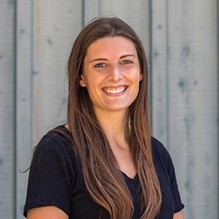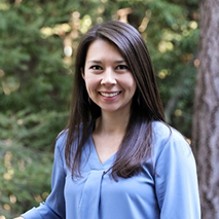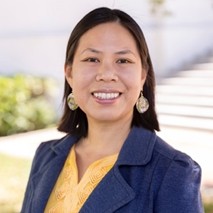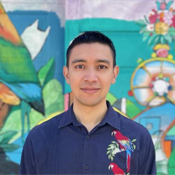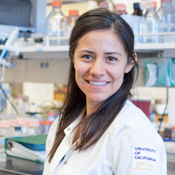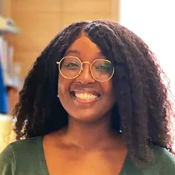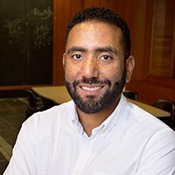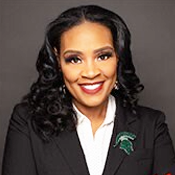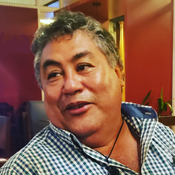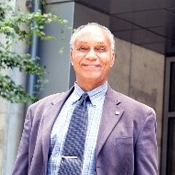Fellows in the news
Two UC Santa Cruz scientists named 2024 Sloan Research FellowsAssistant Professor Roxanne Beltran, a former UCSC Chancellor’s Postdoctoral Fellow and Assistant Professor Jacqueline Kimmey, a former President’s Postdoctoral Fellow hosted by UCSD have both been awarded the prestigious Sloan Research Fellowships honoring early-career scientists. Dr. Beltran, Assistant Professor in the Department of Ecology & Evolutionary Biology said, “With funding from the Sloan Foundation, my team and I can now begin to understand how shifting ocean conditions are impacting food resources for marine vertebrates, and in turn, how their ability to survive and reproduce may be threatened in our changing world.” Dr. Kimmey, Assistant Professor in the Department of Microbiology & Environmental Toxicology Department said, “With this funding from the Sloan Foundation, we can now investigate how invasive infections such as sepsis and meningitis affect neural circadian rhythms, and one day, hopefully leverage this information to optimize clinical therapeutics and improve disease outcome.” |
Photos courtesy of |
Cheryl Yin quoted in The 19th news websiteCheryl Yin, a former UC Berkeley Chancellor’s Postdoctoral Fellow in the Department of South and Southeast Asian Studies, was recently interviewed and quoted in an article on the news website The 19th. The article covers the nonprofit organization Khmer Girls in Action (KGA). Based in Long Beach, CA, KGA empowers Cambodian American youths whose parents resettled in the U.S. as refugees. In the piece, Cheryl Yin, a Cambodian American and native of Long Beach, shares her thoughts on the valuable work KGA is doing in the community. |
Photo courtesy of |
Scholar Reconnects to UC Davis and His Homeland Through Research on San Francisco Murals“Mauricio Ernesto Ramírez, a postdoctoral scholar in the UC Davis Department of Chicana and Chicano Studies, first walked through Balmy Alley when he was a student at a nearby elementary school in San Francisco’s Mission District. The block-long alley contains the most concentrated collection of murals in a city that’s a tapestry of murals. The alley’s art — which first began appearing in the early 1970s —has long been about issues relevant to the many Mission residents who trace their roots to Mexico and Central America.” |
Photo courtesy of |
Caroline Collins highlights Black Americans ties to the PacificCaroline Collins is a President’s Postdoctoral Fellow in the Department of History at UC Irvine who recently published a perspective piece in the Washington Post. Her article, titled, “Black Americans have deep ties to the Pacific — but they’ve been erased,” analyzes experiences of Black mariners upon the Pacific including exploration, U.S. military service, and discrimination. Collins explains, “Black histories like these are often absent both from popular understandings of Western history, as well as cultural representations of the Pacific Ocean and its beaches. But they are crucial to include, because this rich history is a living one — Black folks continue to live, work and play upon the Pacific. And including these stories in popular conceptions of the U.S. Pacific is integral to better understanding the complex histories of migration, innovation, conflict and race that define the American West.” |
Photo courtesy of |
N. Soledad Reyes de Barboza work on cellular senescence in the lungN. Soledad Reyes de Barboza is a former UCSF Chancellor's Postdoctoral Fellow in the Department of Medicine who recently published an article in the peer-reviewed journal American Association for the Advancement of Science. Her article, titled, “Sentinel p16INK4a+ cells in the basement membrane form a reparative niche in the lung” highlights a role for p16INK4a+ fibroblasts as tissue-resident sentinels in the stem cell niche that monitor barrier integrity and rapidly respond to inflammation to promote tissue regeneration. |
Photo courtesy of |
Biomedical sciences postdoc awarded UC fellowshipMeli’sa Crawford explains that her study has direct relevance to understanding how air pollutants drive chronic disease by modifying gut physiology. |
Photo courtesy of |
"You can’t dismantle what you don’t recognize: The effect of learning critical Black history in healthcare on perspective-taking"Being exposed to some of the many historical incidences of anti-Black racism in American health care can contribute to white peoples’ recognition of health disparities currently faced by Black Americans and lead to their support for policies that aim to create more equitable health outcomes, according to UCLA psychologists Kimberly Martin, who conducted the research as a UCLA doctoral student in social and health psychology, and Kerri Johnson, a UCLA professor of social psychology and communication. Their findings are published today in the peer-reviewed Journal of Experimental Psychology: General. |
Photo Courtesy of |
Facing racism in science, ‘I decided to prove them wrong’UCI assistant professor of molecular biology and biochemistry Dequina Nicholas studies how lipid immunology contributes to Type 2 diabetes and polycystic ovarian syndrome, with the goal of developing immunotherapies. Before she joined UCI, some colleagues told her that Black people didn’t make good scientists. “There are many ways you can take messages such as that,” she says. “It can demoralize or crush you. I decided to prove them wrong. I worked extremely hard. My goal has always been to change attitudes, change perspectives.” Nicholas recently sat down with Nature magazine to discuss tackling racism in science head on and how burning a bridge can sometimes be an act of self-preservation. Last year, Dr. Nicholas won the National Institutes of Health Director’s New Innovator Award. The award comes with $1.5 million, Nicholas says, which means that “for the next five years we have funds to recruit patients and pay for staff. I want things to get better and better, and this will help.” |
Photo Courtesy of |
Roberto Tinoco makes New Breakthrough in Chronic Infections and CancerFormer Chancellor’s Postdoctoral Fellow and Assistant Professor Roberto Tinoco has made a ground-breaking discovery regarding the vital role of a protein called High Mobility Group Box 2 (HMGB2). HMGB2 was found to regulate chromatin accessibility, affecting the expression of genes crucial for Tpex and Tex cell differentiation. This opens up the possibility of manipulating chromatin remodeling to increase the reinvigoration potential of exhausted T cells, thereby extending the effectiveness of immunotherapies. This research brings us closer to unlocking the full potential of our immune defenses and offering new hope to patients worldwide. |
Photo Courtesy of |
Aaron Streets receives Chancellor’s Award for Advancing Institutional Excellence and EquityFormer President’s Postdoctoral Fellow and Associate Professor of Bioengineering Aaron Streets has been awarded the Chancellor’s Award for Advancing Institutional Excellence and Equity (CAAIEE.) This award has been presented to UC Berkeley faculty members for outstanding contributions in advancing diversity, equity, inclusion, belonging, and justice (DEIBJ) – through their research, teaching, and public or university service. Professor Streets’ wide-ranging efforts to diversify engineering and the biosciences have been deeply transformative – not only to Berkeley Bioengineering, but also to the College of Engineering, the campus as a whole, and the broader field of STEM scholarship and practice. As a scholar, Streets’ innovative research includes key contributions to the Human Cell Atlas, an international collaboration to map the types and properties of all cells found in the human body. Since 2017, he has served as director of Berkeley’s Bioengineering Scholars Program (BioESP.) Professor Streets will use his award grant to support and enhance the work of the Next Generation Faculty Symposium and to provide additional summer research stipends to support more undergraduate students in the Bioengineering Scholars Program. |
Photo courtesy of |
Proposal to Create a Philosophy Department at UC Merced ApprovedAfter nearly 20 years, philosophy is its own department at UC Merced. The formation of this department represents the ongoing evolution and maturation of the campus. Former President’s Postdoctoral Fellow Jeff Yoshimi joined the new UC Merced campus at its founding as Assistant Professor and created the Philosophy Minor with his colleagues in 2011 and Philosophy Major in 2019. An important thread in the proposal is the faculty’s intention to contribute significantly to the campus’s commitments to grow its education and research contributions in ways that support UC Merced’s objectives for diversity, equity, and inclusive excellence. For instance, the proportion of Hispanic, women, and first-generation students in the Philosophy major matches that of the campus more generally, reflecting intentional changes to the program initiated. This is unusual for a philosophy program and speaks volumes about the likely future impacts of their ongoing commitment, which will include ongoing diversification of their faculty as their department grows. The faculty are pursuing a strongly campus-¬aligned teaching and research agenda that will add great value to UC Merced’s students’ educations and in turn the impact of our campus on the region, California, and the world. |
Photo courtesy of |
Rema Vassar elected new chair of the Michigan State University board of trusteesThe Michigan State University board of trustees elected the first Black woman to lead the board, former President’s Postdoctoral Fellow, Rema Vassar. Affectionately known as Dr. Rema, Vassar is a professor of educational leadership and policy studies at Wayne State University in Detroit and serves as special adviser to the office of the provost on Black student success in K-12 education and public schools in Detroit. Dr. Rema earned her doctorate from UCLA in Urban Schooling and currently serves as Professor in the department of Administrative and Organizational Studies at Wayne State University’s College of Education. |
Photo courtesy of |
UC Berkeley Social Sciences Associate Dean wins prestigious Fukuoka PrizeUC Berkeley Social Sciences Associate Dean Khatharya Um was recently named a laureate of the distinguished Fukuoka Prize. Um, who is also an associate professor of Ethnic Studies, was selected for Fukuoka’s Academic Prize for her notable contributions in the fields of political science, Southeast Asian Studies and global education – especially her work on the history of Cambodia, the Fukuoka Prize Committee announced. “I am extremely humbled by this honor and profoundly grateful for this recognition,” said Um, who was born in Phnom Penh, Cambodia and relocated to the U.S. in 1975 during her country’s civil war. “As a refugee studies scholar, I see this as a recognition not only of my scholarly contributions but of the critical nature of the issues that we engage as scholars and global citizens, which are among the most pressing of our time.” |
Photo Courtesy of |
In Memoriam:Dr. Julio Lopez Maldonado, former UC President’s Postdoctoral Fellow, passed away due to complications from the COVID-19 virus on July 1, 2020. Dr. Maldonado was a preeminent scholar on the relationship between the native sting-less Melipona beechi bee and Mayan society, which led him to decode more than 24,000 Mayan hierogylphs- the most extensive work that has been done to further the understanding of Mayan culture. The central thesis of his work was that in their relationship with the Melipona, the Mayans organized their society to reinforce the practice of bio-cultural reciprocity and diversity as a function of a good society and a balanced world. We send our deepest condolences to his wife, children, family, and friends. |
Photo Courtesy of |
In Memoriam:On December 10, 2021, Tyler Stovall suddenly and unexpectedly passed away in New York City. He spent most of his career in the University of California system. He held a Berkeley postdoc from 1984 to 1986 and then was a professor at Santa Cruz from 1988 to 2001. From 2001 to 2015, he served on the Berkeley faculty, entering administration in 2006. Stovall returned to Santa Cruz as dean of humanities from 2015 to 2020. In 2020, he became dean of graduate studies at Fordham University. Despite his administrative duties, Stovall remained a prolific historian and a passionate teacher. Stovall was one of the first historians to engage in a critical analysis of race in France, challenging the self-congratulatory French myth that racism was an Anglo-Saxon problem. Arguing that history could not exist within the framework of the nation-state, he placed France in a world historical context. While trained in the late 1970s and early 1980s as a social historian of white industrial workers, Stovall pioneered the history of nonwhite people in France. His best-known work is Paris Noir: African Americans in the City of Light (Houghton Mifflin, 1996). The lively and entertaining narrative recounts how Black American soldiers in the First World War discovered a white world free of Jim Crow. Stovall contrasts how Paris welcomed generations of Black Americans with how migrants from French colonies in Africa were (and continue to be) subject to various forms of prejudice, repression, and violence. After decades of historians either ignoring or romanticizing the French colonies, Stovall played a crucial role in the “colonial turn” in French history, an explosion of critical empire studies. Stovall co-edited volumes including French Civilization and Its Discontents: Nationalism, Colonialism, and Race (Rowman and Littlefield, 2003); The Color of Liberty: Histories of Race in France (Duke Univ. Press, 2003); and Black France/France Noire: The History and Politics of Blackness (Duke Univ. Press, 2012), which directly challenged older scholarship and scholars. As an administrator, Stovall worked to support historically underrepresented faculty and students long before the phrase “diversity, equity, and inclusion” became common parlance. In 2017, Stovall served as president of the AHA. In his Perspectives columns and his presidential address, Stovall presented the central argument of his last book, White Freedom: The Racial History of an Idea (Princeton Univ. Press, 2021), which examines the intersections of white supremacy and political privilege in France and the United States. The book is a culmination of the historian and the man who was Tyler Stovall. His final work critiques the global history of white supremacy, arguing that French and American notions of freedom were built on the unfreedom of people of color. Tyler Stovall should be remembered as a scholar who firmly believed that the writing and teaching of history was a political act. He is survived by his wife, Dr. Denise Herd, and his son, Justin. (excepts from Michael G. Vann, California State University, Sacramento). |
Photo courtesy of |

